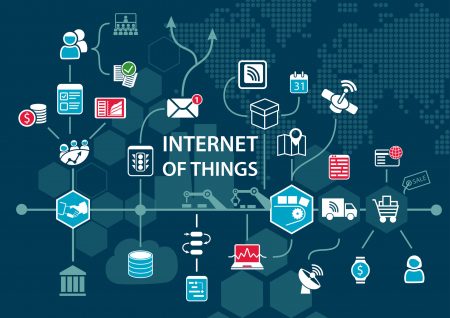In the “Internet of Things” everything communicates with everything. Only without people.
The “Internet of Things” (“IoT”) consists exclusively of intelligent sensors and other devices. The global networking of information and communication technology is not only revolutionizing processes, collaboration and communication, it is also paving the way for new business and revenue models. In addition to computers, tablets and smartphones, these include wearables, consumer electronics, household appliances, vehicles and industrial machines. Advanced technologies such as cloud technologies, big data and IT security enable new evolutions. Together they pave the way for the digital transformation of companies. Even the Internet of Things is only one stage: the Internet of Everything will in future connect data, people, machines and processes.
Advantages Lower Costs, Greater Productivity

In particular, machine-to-machine (M2M) communication currently promises the industry innovative, disruptive business models and thus new growth opportunities. Fully networked value chains in the sense of an industry 4.0 mean a new production logic: intelligent machines, warehouse systems and equipment that exchange data without human intervention and control themselves independently. With the help of the Internet of Things, a company can design its product portfolio much more flexibly and change production processes faster – for example to react to delivery bottlenecks or customer requests. Companies in the mechanical engineering, chemical, electrical and automotive industries therefore use applications from the Internet of Things or are planning to use appropriate technologies.
